- Home
- Robert J. Crane
Cold Page 20
Cold Read online
Page 20
Veronika peered at me with an utter lack of amusement. “Well, I’d rather not get launched through a hotel facade again, if that’s what you’re insinuating.”
“I don’t want that for you, either,” I said. “I’d rather not have to deal with this guy or gal or genderless blur by myself.”
She stared at me, almost inscrutable, like she was trying to decide something. “Come on,” she said, jerking her head toward the vast, empty desert space across the street. Then she slowly backed a couple steps from the door before turning to walk away.
“Wait—uh, where?” I asked.
“Breakfast,” she said. “And we need to talk about your…well, everything.” She made a hand wave gesture that seemed to incorporate my entire body.
“Oh. Okay. I need to get dr—” I looked down out of habit, then back up at Veronika. She was staring at me with complete pity. “I guess I’m ready to go right now.”
“Good,” she said, and headed across the parking lot without waiting for me to say anything else. I scrambled to grab my room key and followed after her, trying not to trip over my own feet or zip a car across the parking lot as I did so.
37.
Sienna
“Why would the governor do a public event today?” Holloway asked, channeling the thought we were all having. “And for a library dedication of all things?”
“Clearly the man is deeply concerned about childhood literacy to the exclusion of worrying about his own life,” I said, my jaw tense.
Burkitt let out a low chortle from behind the wheel. Sun-dappled trees were blazing past in a blur of green as we headed back to the New Orleans FBI field office on the freeway. “But seriously,” he said, “why is the local Triad boss tipping you off about the governor’s schedule?”
“I have a theory,” I said, “based entirely on logic and speculation and short of any evidence at all: the governor is corrupt and in business with the Triads in some way, and she’s protecting her investment.”
“That’s cold,” Burkitt said, “and big, accusing the governor of corruption without any evidence. Not without some precedent in politics, but still…big. I wouldn’t breathe a word of that in public.”
“Don’t worry, Chalke has me off the interview circuit until…well, forever,” I said. “But back to the point—all I’m seeing so far is a giant mishmash of data points. Speaking as professional investigators, gents—how is one supposed to stitch these together into a cogent criminal narrative which we can use to, oh, I don’t know—crucify Governor Warrington?”
“Not the job,” Holloway said, almost grunting.
“You want to be a little careful about that one,” Burkitt said, and for the first time, I caught some hesitation off of him. “Ivan Warrington…he’s got some power behind him.”
“So do I,” I said. “But yes, I take your point since the FBI Director called me herself this morning to let me know that saving his life was up there in the President’s priorities list, probably between his crayon coloring session and before his paste-eating midmorning snack.”
“Gondry was a college professor before he became President,” Holloway said, sounding a little outraged on the man’s behalf. “He went to Stanford, for crying out loud. He’s not a moron.”
“Keep telling yourself that,” I said, rolling my eyes, “and someday maybe a magical fairy will come and teach you the difference between education and horse sense. I’m not knocking his IQ, just what he applies his immense intelligence to. And since he’s nearly killed me on several occasions, I feel like I’ve earned the right to call him an idiot even absent the First Amendment, which says I can talk shit about anyone I damned well please, President or not.”
“Back to the point at hand,” Burkitt said, probably trying to defuse Holloway’s building response, since his face was now blood red and his mouth a twisted line. “Your inference about Warrington being bent? It could be true, but we haven’t heard a whisper of it locally. And that’s not the sort of thing that tends to stay secret.”
“He’s a politician,” I said. “They’re all corrupt to some greater or lesser extent, at least at the national level. It’s just a question of whether he’s corrupt within the bounds of the law or not.”
“Okay, we get the point,” Holloway said, and I quit, because he basically exploded. “You hate politics and the government. Which is a strange position to be in, since you work for it.”
“I don’t hate the government,” I said, keeping my calm while he seemed to be ready to light off like a firecracker. “It’s just like Churchill said; to bastardize his quote, it’s the worst there is—except for all the other governments. I’m not a big fan of the things they do, but if I’m unhappy with it, it’s because I count on them to keep order. I’m a big fan of order, probably because I’ve tasted enough chaos in my life to know that the alternative sucks. But I’m also keenly aware that the more corrupt or unjust the system gets, the more you invite someone to come along and kick it over, justly pointing out how corrupt it is. And those situations almost never result in a more just system being put in its place, so…”
“So, you’re a passionate advocate for anti-corruption,” Burkitt said, and it seemed to me he was trying to keep things from escalating between me and Holloway, who was just steaming beside him. I found it a particularly delicious point of irony that Mr. Gropey was such an ardent Lord of Order.
“Thanks for bullet-pointing that for me, Burkitt,” I said. “I do so like bullets.”
“No problem,” Burkitt said. “Now—how do we find out where this library dedication is?”
“I suggest we go right to the source,” I said, pulling out a business card I’d pocketed yesterday and then dialing my phone. “Jenna Corcoran strikes me as the horse’s mouth.”
“Go for Corcoran,” came the answer at the other end.
“Really?” I asked, pretty sure my face was as scrunched up as I could have made it. “That’s how you answer your phone? ‘Go for Corcoran’?”
“Ms. Nealon,” she said, so clipped. She must have been pleased to hear from me. I have that effect on people. “What can I do for you?”
“Yes, I’m calling about booking tickets for the governor’s dedication ceremony this morning,” I said. “I’m very interested in literacy and civic events, and I’d like to be right in the thick of the crowd if possible.”
“Really?” Earnest hope. I needed to crush that.
“No, you junior league Sidney Blumenthal,” I said, lowering the boom, “not really. Why did you schedule a damned library dedication today? Or keep it on the schedule if it was already there? Are you trying to get Warrington killed?”
“Of course I’m not,” Corcoran said, getting huffy. “The event was originally on the schedule, and while we decided to cancel immediately in the wake of yesterday’s incident, after some discussion it was determined that upholding the integrity of the governor’s office by keeping to our commitments—”
“Save the long-form messaging bologna for the tourists,” I said. “I’m a full-blown cynic, and I buy it not at all.”
“We consulted with the Louisiana State Police and they said they can protect the governor at this event,” Corcoran said.
“I don’t know who’s in charge over there,” I said, “but I’m not sure I believe the conversation was that simple.”
“Regardless—” she started.
“Regardless, get your head out of your ass and cancel this thing,” I said. “You’re giving this assassin a perfect chance to kill your guy.”
She was quiet a second. “Well, I’m sure you’ll stop her.”
“I’m not,” I said. “Many and varied are my skill sets. Stopping ice bullets from hitting other people? Not among them. I need more time to investigate, to track this assassin down. It’s been twenty-four hours—”
“Are you closing in on the killer?” she asked.
Now it was my turn to pause, and it was pained. “Well, we have some leads. A description, for
one, that ties the assassin to a dead body found in Plaquemines Parish a couple years ago.”
“You found a prior victim?”
“I don’t think so,” I said. “Maybe an identical twin, though.” Holloway cringed, his eyebrow twitching.
“A…twin?” Corcoran’s skepticism bled over the line.
“Yeah, maybe,” I said. “And speaking of leads, you know Mitchell Werner, right?”
This produced a long pause. “In passing. Why?”
“Because he’s sleazy and in politics so I assumed you would,” I said, and savored what I imagined her face looked like on the other end of the conversation. It was really good, eyes kind of half-slitted with annoyance. “I had a conversation with him this morning because he paid for the burial of the dead girl—”
“I don’t see what this has to do with the matter at hand.”
“Because we’re trying to track her ‘sister’ down, duh,” I said. “And I need more time. Which means I need the governor to not put himself into a position to get killed. Kindly cancel the library event.” I looked out the window to see the New Orleans skyline.
“No,” Corcoran said. “You’re here to support us and investigate. If you have concerns about the event, you’re welcome to show up and provide security, but the show must go on. The governor’s re-election campaign is already in full swing—”
“It’s two years until his next election.” I’d checked the internet and it had told me so.
“—and we have serious ground to cover.”
“This is everything I hate about American politics these days. I read history. I know election campaigns didn’t used to last this long. Pretty soon we’re going to have gubernatorial and presidential campaigns that start the day after the last one wrapped up, and I kind of wish I had my fire powers back just so I could spontaneously combust in protest without dying.”
“Are you coming to the event to help or not?” Corcoran’s patience appeared to have reached its end. “Because I have things to do.”
“If he dies at this, it’s on your head,” I said.
“No,” she said, not a drib of emotion coming through the connection, “it’s on yours. You’re in charge of security. The event’s downtown, near the World War II museum. I’ll make sure the Louisiana State Police know you’re coming to take over security.”
“The hell I am—” But I heard a click at the other end that signified our conversation was over. “Shit.”
“Did we just get roped into security detail?” Burkitt asked, shooting me a sympathetic look. We were sitting at a traffic light that had turned red, sun pounding in through the windows from a blue and open sky.
“We did.” I let my phone sag down, staring at the screen that informed me the bitch had hung up on me. “Looks like we’re out of the investigating business for a little while, guys.” I shook my head and stared out the window. There wasn’t a lot of foot traffic out there this morning. Hopefully it’d mean sparse attendance at the dedication, too. “Let’s go save this idiot from himself.”
38.
The library in question wasn’t terribly far from the hotel. I watched the tracking dot on my phone GPS and compared it to where I was staying, and it looked to be within ten blocks. A little down Magazine Street, a little off the Pontchartrain Expressway, and not too far from a giant, circular road called Lee Circle.
“There’s a museum dedicated to World War II over there,” Burkitt said, pointing in the direction of Magazine Street. “Foremost in the US. Pretty impressive, really. You should check it out if you’re really into history.”
“It was my favorite subject other than all the combat-related ones,” I said.
“Where did you go to school?” Holloway asked. “Hunger Games Academy?”
“I was homeschooled,” I said. “I thought everyone knew that.”
“Oh, right, the whole basement and box thing,” Holloway said, nodding along. “I forgot. You seem so normal. Relatively.”
“That’s not something I hear very often,” I said. “Thanks. I think.”
Holloway just grunted. Burkitt rolled us through a traffic light and into a surface lot where a half-dozen Louisiana State Police cars were parked. He flashed his ID to the officer guarding the lot and was waved in, backing up to park us tail-in to the spot for a quick and easy escape.
“This is crazy,” Holloway said, pulling his gun out of the holster and gently racking the slide back to confirm he had a round in the chamber. “What kind of moron dedicates a library on the day after he’s been shot at?”
“I get the general sentiment on Warrington’s part,” I said, feeling no need to perform the same exercise; there was always a bullet in my gun’s chamber. “He’s trying to provide a continuity of leadership. Reagan did something similar after being shot in the 80s. Ford was out and about after the Squeaky Fromm attempt, too. You have to show your face, fly the flag, to tell people you’re not afraid.”
“That’s just stupid,” Holloway said, re-holstering his piece. “Warrington should be afraid. That ice queen almost got him. Would have, if not for pure luck.”
“I agree with all that,” I said, throwing open my door. No child locks today; Burkitt must have remembered. “But I see why he’s doing it, even if I, too, think he’s being under-cautious.”
The sun felt like it was beating down, and I hadn’t realized quite how much Burkitt had turned down the AC in the car. The rays seemed to catch my dark suit the second I hit the sidewalk, heating the entire surface area to a hundred degrees plus, even though there was a slightly cool breeze wafting down the city streets.
“This feels like DC,” Holloway griped.
“Lot of humidity,” I agreed. “That’s going to work against us if this lady really is an ice meta.”
“How so?” Burkitt fell into line behind me as I headed toward the library, which, by my GPS, was two blocks from here.
“Water or ice metas need moisture to work with,” I said. “Even my bud Scott, a top-of-scale Poseidon-type, would really struggle to make anything happen in the middle of, say, the Sahara. With all this humidity, though, our ice queen is going to be able to do just about anything she wants. Make an ice slide, create ice bullets—the sky’s the limit.”
“Great—I love when it my suspects have lots of weapons to work with,” Holloway said. “It really keeps the job interesting.”
“Agreed,” I said, a little more muted as we turned the corner. The library was ahead, a massive white-grey concrete structure with steps and a colonnade that took up the center third of the facade. There was a picket line of cops and tape at the base of the steps, which looked to be about twenty, thirty feet high. The governor’s podium was set up directly under the colonnade’s shadow, at the top of the stairs, so he could look over the whole crowd. There were probably fifty, sixty Louisiana State Police troopers posted up and down the street, and when I looked at the rooftops, I saw more of them there, some with long rifles in hand, ready for a sniper.
“Louisiana State Police look to be taking this seriously,” Holloway said, a little admiring beneath his usual gruff demeanor. “This is Secret-Service-level protection.”
“Well, Warrington did almost catch a bullet yesterday,” I said. “That’s bound to escalate the threat level. I imagine the LSP aren’t looking to let something like that go down on their watch.”
One of the LSP troopers waved us through the cordon after we flashed ID. There was no crowd at the library yet—they were being held back a few blocks by the cops—but one was clearly building, and my hopes that this event would go ill-attended were plainly way off base. I wiped my sleeve against my forehead, perspiration already starting to gather there.
We made our way over to the man in charge of the scene. He was pretty obvious, standing in the middle of a few troopers, a head taller than any of them, his dark, ebon skin sweating away in the sun. He doffed his hat to us as we approached, and greeted us with, “Ms. Nealon. I’m Captain Boudreaux.”
“Nice to meet you,” I said, taking his offered hand for a second. He pumped mine gently and let go after one time. I liked big guys like Boudreaux; they never tried to show off by crushing my hand, they always seemed secure and gentlemanly enough to be brief and on about the business rather than make a thing of it. “You’ve done a fine job setting up, given what you’ve got to deal with here.”
“The sight lines are bad,” Boudreaux said with a touch of Creole or something, a very local accent, pointing down the street. “It’s not as clear a shot as she had at the ferry, but it’s not airtight for us.”
“Looks like you posted counter-snipers everywhere you could,” Holloway said, giving the whole area another eyeballing. “It’s a good setup.”
Boudreaux nodded his appreciation. “Where do y’all want to be for this?”
“Where I can do the most good,” I said, looking around.
He gave me a quick once-over. “How are you with a rifle?”
“Fair,” I said. “Better than most, but not a pro. I’m best at 200 yards or less.” That had been about the range when last I’d had cause to use a scoped rifle, back at a quarry in Maple Grove, Minnesota. I don’t think anyone had ever told me the final body count there, but it had to be north of a hundred, because I was fairly merciless in my shot choice, and when the ambulances showed up there weren’t nearly enough of them to go around.
“Maybe you should go on top of this roof here, then,” Boudreaux said, pointing at the one directly across the street from the library. “It’s central, and if you keep your head down and wear one of our hats, the shooter might not pick you out of the crowd of us.”
“Yeah, I like the idea of making my presence here a surprise to her,” I said, mulling it for about a second. “And it gives me a good vantage for almost everywhere she could manage a shot. Let’s do it.”
“Where do you want me?” Burkitt asked, drawing a scowl from Holloway. I suspected it was because by putting himself at my disposal, Burkitt had opened Holloway up to being ordered around by me. It faded in a moment, though, as Holloway maybe reconciled himself to being bossed around.

 The Girl in the Box Series, Books 1-3: Alone, Untouched and Soulless
The Girl in the Box Series, Books 1-3: Alone, Untouched and Soulless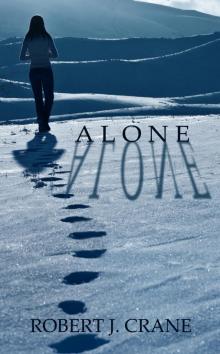 Alone: The Girl in the Box, Book 1
Alone: The Girl in the Box, Book 1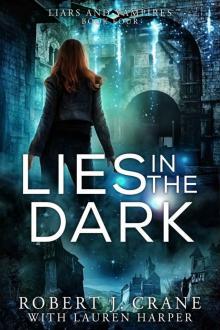 Lies in the Dark
Lies in the Dark Cold
Cold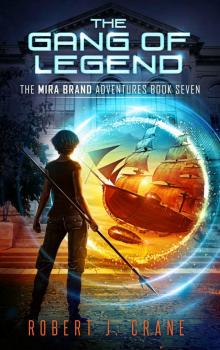 The Gang of Legend
The Gang of Legend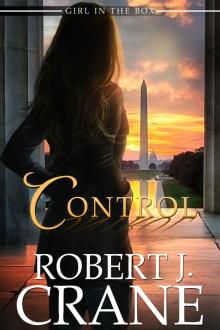 Control: Out of the Box (The Girl in the Box Book 38)
Control: Out of the Box (The Girl in the Box Book 38)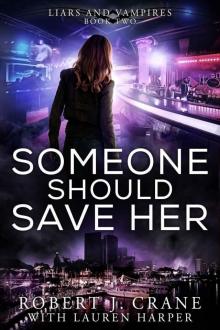 Someone Should Save Her
Someone Should Save Her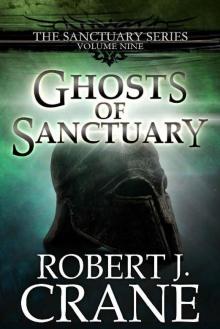 Ghosts of Sanctuary
Ghosts of Sanctuary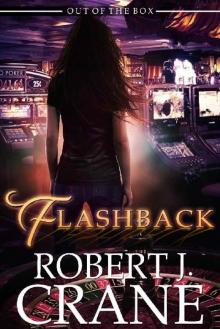 Flashback (Out of the Box Book 23)
Flashback (Out of the Box Book 23)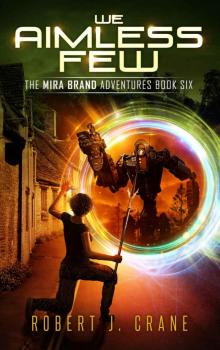 We Aimless Few
We Aimless Few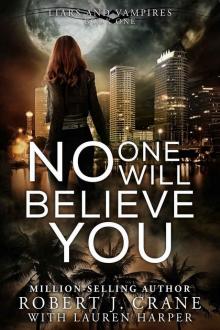 No One Will Believe You
No One Will Believe You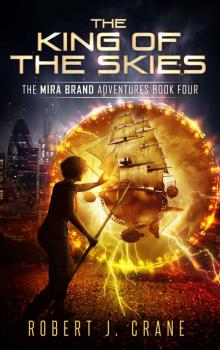 The King of the Skies
The King of the Skies Apex
Apex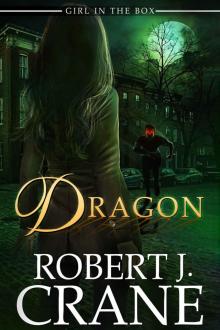 Dragon: Out of the Box (The Girl in the Box Book 37)
Dragon: Out of the Box (The Girl in the Box Book 37)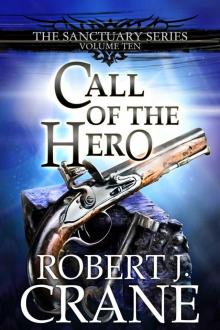 Call of the Hero
Call of the Hero Blood Ties
Blood Ties A Home in the Hills
A Home in the Hills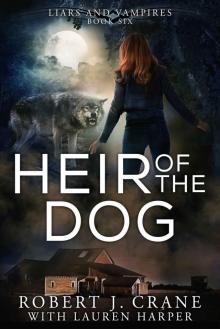 Heir of the Dog (Liars and Vampires Book 6)
Heir of the Dog (Liars and Vampires Book 6)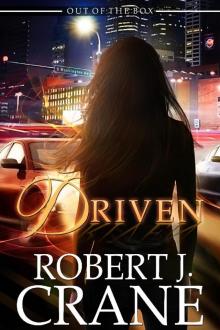 Driven
Driven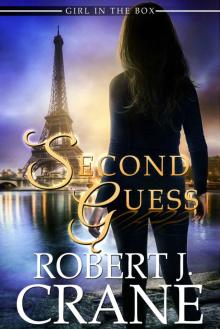 Second Guess (The Girl in the Box Book 39)
Second Guess (The Girl in the Box Book 39)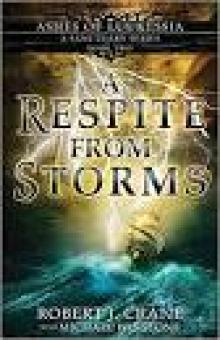 A Respite From Storms
A Respite From Storms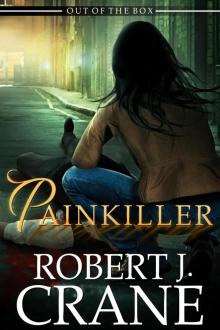 Painkiller
Painkiller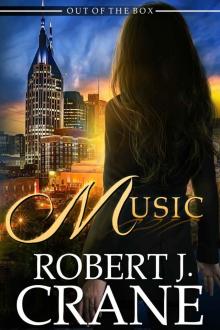 Music: Out of the Box 26 (The Girl in the Box Book 36)
Music: Out of the Box 26 (The Girl in the Box Book 36)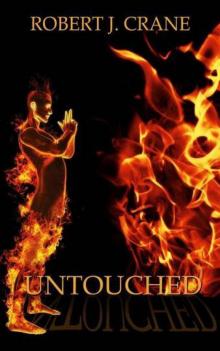 Untouched tgitb-2
Untouched tgitb-2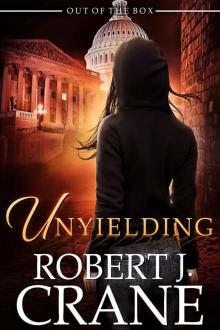 Unyielding (Out of the Box Book 11)
Unyielding (Out of the Box Book 11)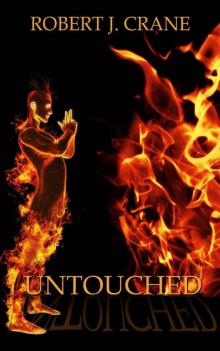 The Girl in the Box 02 - Untouched
The Girl in the Box 02 - Untouched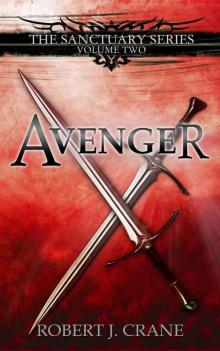 The Sanctuary Series: Volume 02 - Avenger
The Sanctuary Series: Volume 02 - Avenger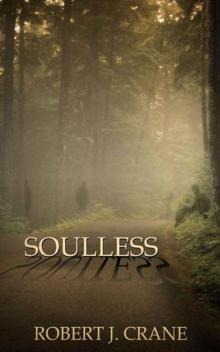 Soulless tgitb-3
Soulless tgitb-3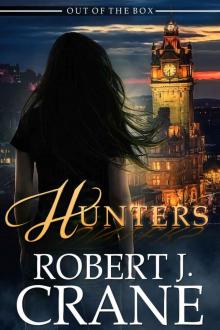 Hunters (Out of the Box Book 15)
Hunters (Out of the Box Book 15) Toxicity (Out of the Box Book 13)
Toxicity (Out of the Box Book 13)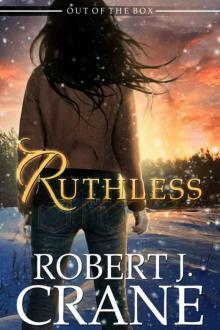 Ruthless (Out of the Box Book 3)
Ruthless (Out of the Box Book 3)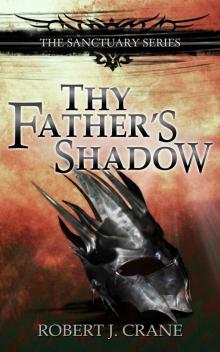 Thy Father's Shadow (Book 4.5)
Thy Father's Shadow (Book 4.5)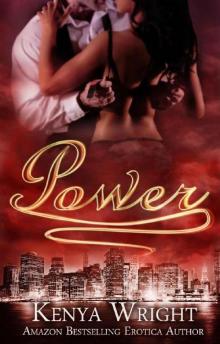 Power
Power Alone tgitb-1
Alone tgitb-1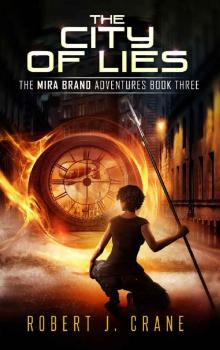 The City of Lies (The Mira Brand Adventures Book 3)
The City of Lies (The Mira Brand Adventures Book 3)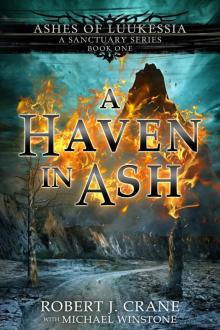 A Haven in Ash
A Haven in Ash Family
Family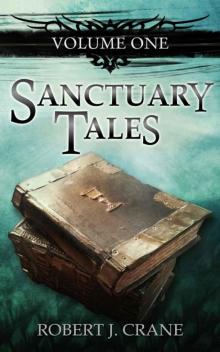 Sanctuary Tales (Book 1)
Sanctuary Tales (Book 1) Hero
Hero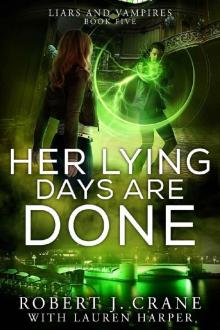 Her Lying Days Are Done
Her Lying Days Are Done![Crane, R [ Southern Watch 03] Corrupted Read online](http://i1.bookreadfree.com/i1/04/02/crane_r__southern_watch_03_corrupted_preview.jpg) Crane, R [ Southern Watch 03] Corrupted
Crane, R [ Southern Watch 03] Corrupted Tormented
Tormented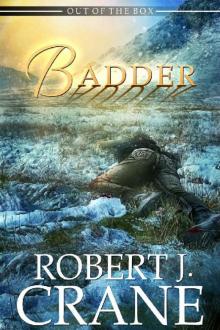 Badder (Out of the Box Book 16)
Badder (Out of the Box Book 16)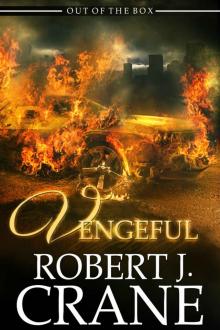 06 - Vengeful
06 - Vengeful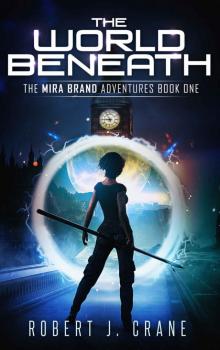 The World Beneath (The Mira Brand Adventures Book 1)
The World Beneath (The Mira Brand Adventures Book 1) Heretic (The Sanctuary Series Book 7)
Heretic (The Sanctuary Series Book 7)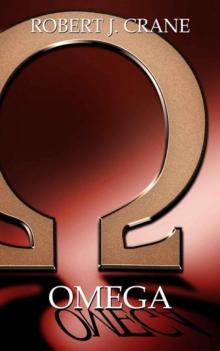 Omega tgitb-5
Omega tgitb-5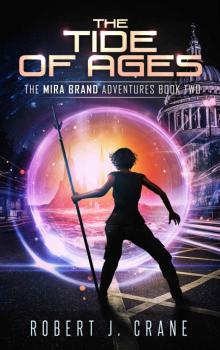 The Tide of Ages (The Mira Brand Adventures Book 2)
The Tide of Ages (The Mira Brand Adventures Book 2)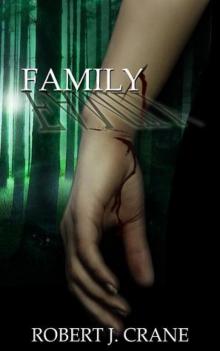 Family tgitb-4
Family tgitb-4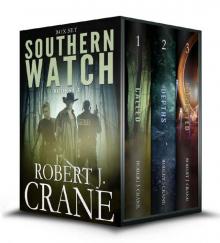 The Southern Watch Series, Books 1-3: Called, Depths and Corrupted
The Southern Watch Series, Books 1-3: Called, Depths and Corrupted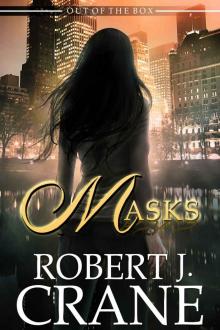 Masks (Out of the Box Book 9)
Masks (Out of the Box Book 9)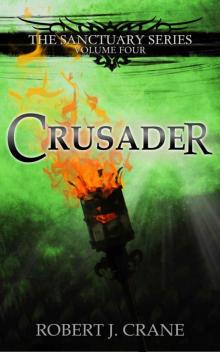 Crusader: The Sanctuary Series, Volume Four
Crusader: The Sanctuary Series, Volume Four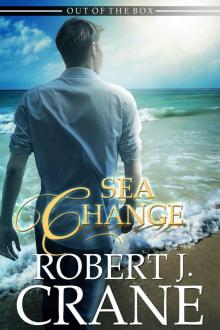 Out of the Box 7 - Sea Change
Out of the Box 7 - Sea Change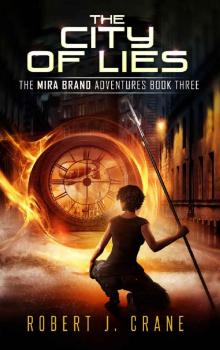 The City of Lies
The City of Lies Warlord
Warlord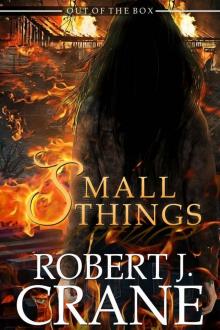 Small Things (Out of the Box Book 14)
Small Things (Out of the Box Book 14)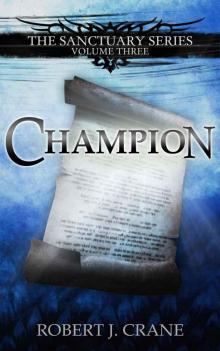 The Sanctuary Series: Volume 03 - Champion
The Sanctuary Series: Volume 03 - Champion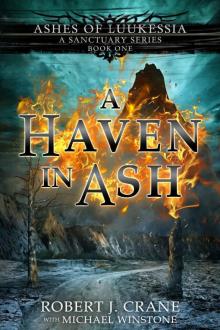 A Haven in Ash (A Sanctuary Series) (Ashes of Luukessia Book 1)
A Haven in Ash (A Sanctuary Series) (Ashes of Luukessia Book 1)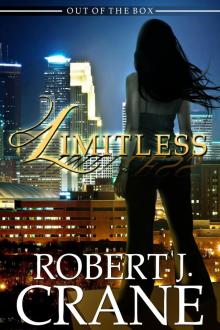 Limitless
Limitless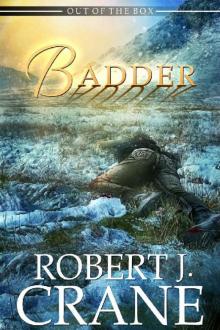 Badder
Badder Legend
Legend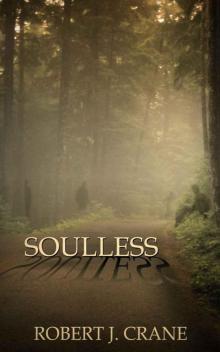 The Girl in the Box 03 - Soulless
The Girl in the Box 03 - Soulless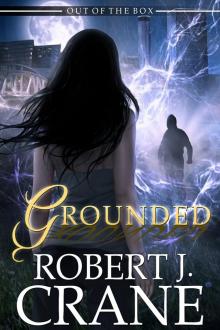 Grounded (Out of the Box Book 4)
Grounded (Out of the Box Book 4) In the Wind (Out of the Box Book 2)
In the Wind (Out of the Box Book 2)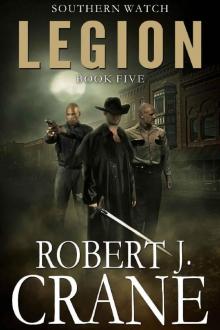 Legion (Southern Watch Book 5)
Legion (Southern Watch Book 5)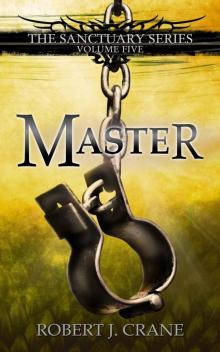 Master (Book 5)
Master (Book 5)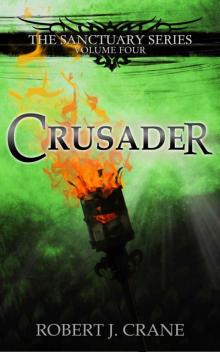 Crusader s-4
Crusader s-4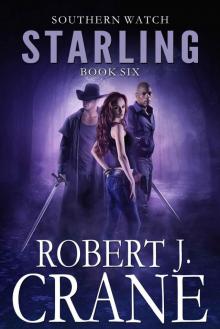 Starling (Southern Watch Book 6)
Starling (Southern Watch Book 6)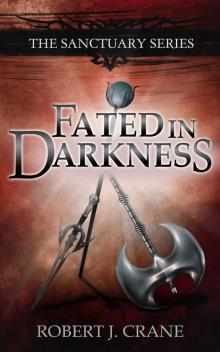 Sanctuary 5.5 - Fated in Darkness
Sanctuary 5.5 - Fated in Darkness